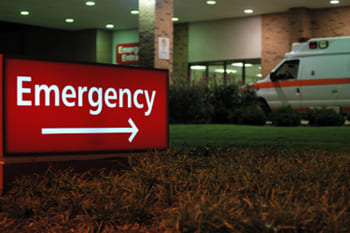August 01, 2012

Last week, I offered reflections on the recent Colorado tragedy in which 12 people died and 58 others were wounded.
At that time, public inquiry had started to focus on whether or not the person responsible for the tragedy had ever sought help for mental illness or whether anyone or any institution had encouraged or required him to be evaluated.
This week, the Washington Post revealed that in years past his mother sought counseling for him—because of his social isolation. Court filings then revealed he was seeing a psychiatrist at the University of Colorado prior to the July 20 attack.
Public discussion initially focused on the wide availability of guns in our society. It has now shifted to the question of whether or not the mental health care system failed leading up to the tragedy. It is an issue addressed eloquently in USA Today by Pete Earley in a guest column, “Massacres No Excuse to Stigmatize the Mentally Ill.”
There are many causes of violence in society. As reported by the U.S. Surgeon General “the overall contribution of mental disorders to the total level of violence in society is exceptionally small.”
When exceptions occur, they are often a sign that something has gone terribly wrong in the mental health care system—which as Pete warns, we ignore “at our own peril.” In specific cases, public authorities or the news media need to inquire:
- What was the full medical history?
- Was there ever a diagnosis; if so, what was it?
- When was he/she seen? By whom? How often?
- Was treatment coordinated among different professionals?
- Did the person or family seek treatment, but have it delayed or denied?
- Was the type of treatment appropriate?
- Was the person hospitalized and recently discharged?
- What events may have triggered the psychiatric crisis?
- Was the person taking medication? If not, why not?
- Did family members receive adequate education and support?
These questions can help inform specific cases, but they are still only part of a much bigger picture.
Frankly, the nation’s mental health care system is not geared to accurate diagnosis or treatment of early-onset mental illness—assuming that a person has access to treatment at all. It doesn’t matter whether a university counseling center or community mental health clinic is involved. The system is fragmented and grossly inadequate. The chasm between need and care is devastating for persons living with mental illness and their loved ones.
The U.S. Centers for Disease Control and Prevention (CDC) has found that about half of adults in America will develop a mental illness during their lifetime. One in four adults experiences a mental disorder in any given year, and one in seventeen lives with a serious mental illness like schizophrenia, major depression or bipolar disorder.
Yet a new report from the federal Substance Abuse and Mental Health Services Administration (SAMHSA) has indicated that only 40 percent of adults with serious mental illness receive any treatment.
When it comes to treatment, one size does not fit all; it often depends on the severity of the condition. Treatment options along a “continuum of care” may need to include medication, psychosocial therapy, housing supports or a combination. To find a treatment provider, a person’s family doctor often is the starting point, but individuals and families then have to contend with confusing referrals or networking among different resources.
For psychiatric crises, hospital emergency rooms may be a default point of admission, but only if individuals consent to treatment—or are judged to be a danger to themselves or others, regardless of other symptoms that may be apparent. Even then, treatment assumes availability of hospital beds.
At a time when mental health care is needed now more than ever, however, many states are cutting both inpatient beds and community services.
In 2009, NAMI published Grading the States, a report on state mental health care systems. The national average was D, based on 65 specific criteria. Since then, conditions have worsened.
In 2011, NAMI published a report on State Mental Health Budget Cuts, showing a deepening crisis.
Increasingly, emergency rooms, homeless shelters and jails are struggling with the effects of people falling through the cracks—due to lack of mental health services and supports.
No matter what facts ultimately emerge from the Colorado tragedy, Americans need to focus on the fact that the mental healthcare system is already in crisis.
Submit To The NAMI Blog
We’re always accepting submissions to the NAMI Blog! We feature the latest research, stories of recovery, ways to end stigma and strategies for living well with mental illness. Most importantly: We feature your voices.
LEARN MORE